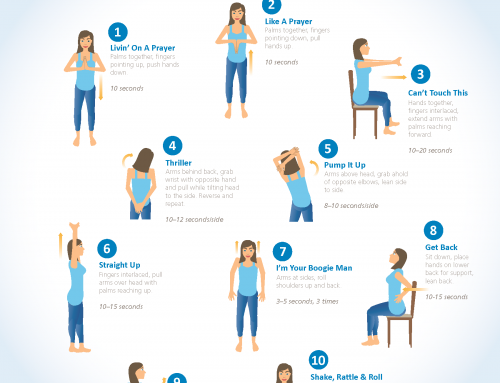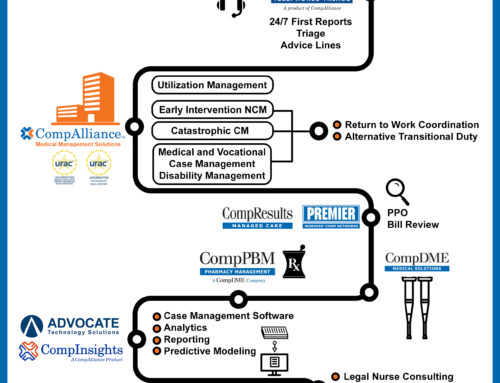In Part 5 of this series, dated 11/18/2018, I discussed the “What’s in It for the Government/Regulator” regarding RTW. Today I will discuss the common perceptions, misconceptions and the “What’s in it for the Attorney”, and a best practice statement by the IAIABC. Please refer to my post dated 9/26/2018, for the list of all stakeholders we identified. Keeping in mind our IAIABC RTW committee is an international group, I will mainly direct my thoughts to the US system.
Perceptions of Attorney Involvement
The perception in the workers’ compensation industry is that applicant attorneys want the highest dollar value of claim settlement and do not advocate for a return to work/function for their client. They drive people to government disability programs in addition to workers’ compensation.
For the defense attorney representing insurers or employers, the perception is they deny claims or medical interventions to avoid claim costs.
Reality of Why Attorneys Should Care About Return to Work?
Workers’ compensation in some US states is perceived as adversarial, and in some states, attorneys play a significant role in the system. Applicant attorneys are sometimes thought of as one of the only organized representatives of injured workers. Attorney involvement in workers’ compensation claims (both applicant and defense) can be perceived as to be generally linked to negative return to work outcomes. There is no disputing that attorneys in workers’ compensation are significant players and have a place in the discussion of return to work.
Applicant attorneys are high influencers of their injured worker clients, and they are duty-bound to act in their client’s best interest. In my opinion and my co-members of the IAIABC RTW Committee, it is in their client’s best interest to get back to work. From a macro perspective, a paradigm shift that embraces return to work while advocating the rights of their clients and jurisdictional laws is needed.
Attorneys are substantial players in workers’ compensation. A recent study from the Worker’s Compensation Research Institute (2012) indicated attorney involvement in lost time claims varied greatly from state-to-state with some states reporting as much as 50% attorney involvement as compared to others with approximately 8%. Unfortunately, research also indicates that attorney involvement in workers compensation claims is associated with negative outcomes such as longer duration of claims, increased costs, and poor outcomes in vocational rehabilitation.
For example, according to a whitepaper by CLARA Analytics, injured workers who hire attorneys to handle their workers’ compensation claims tend to stay on temporary disability longer (284% more days of lost time from work), were 388% more expensive than non-litigated claims and took 195% longer to resolve the claim. While these statistics are alarming, so are some of the reasons an injured worker may feel the need to retain the services of an attorney – Denial of claims, no contact by employers or insurers, late checks, delayed payment of medical bills, worker dissatisfaction, the accident that never should have happened, loss of benefits, only to name a few.
Often, injured workers don’t know what to do next or what their rights are. The attorney must take a client-first approach, advocating for them with the other stakeholders to get their client back to modified, transitional, or their previous employment.
For those representing insurers or employers, they should encourage return to work support early in the claim and avoid unnecessary delays to treatment and adversarial approaches that add to costs.
Vocational or functional restoration of an injured worker should be treated with the same expediency and know-how as the medical portion of the injury. Attorneys should be the driver for ensuring injured workers receive these services, which leads to eventual return to work.
What Works? Opportunities for attorneys detailed in the IAIABC paper titled, “Return to Work; A Foundational Approach to Return to Function”
- Attorneys should recognize that RTW provides the best value for those they have taken an oath to represent, whether an IW, insurance company or employer
- Applicant attorneys should help their client understand the negative impact of a life of disability on their long-term earnings, family and quality of life
- Attorneys representing employers and insurers should recommend injured workers sustaining serious injury and/or significant symptomatology post-injury, be referred for medical management and RTW support early in the claim
Attorneys should promote and support an injured worker’s participation in employer and insurer return-to-work and vocational programs, along with non-clinical interventions such as activity coaching. They best serve their clients by encouraging them to work toward returning to employment, as those who do will experience improved quality of life and lower business costs.
In Summary
Attorneys have a significant influence on injured worker outcomes, whether they represent the worker or the employer. Their role is critical in helping the parties understand the impacts of long-term disability on finances and families. The employer’s role in positively impacting the case and minimizing the injured workers’ perceived need to retain the services of an attorney will be discussed in the next installment.




